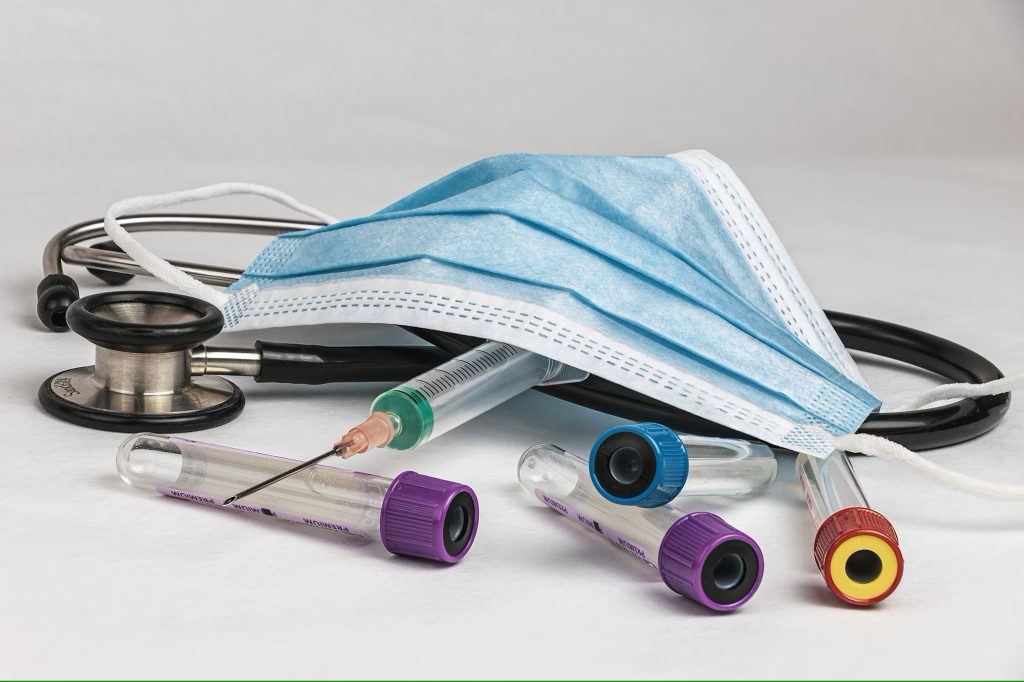Acupuncture, a long-standing practice in traditional Chinese medicine, is becoming more widely recognized as a supportive therapy for addiction treatment. This holistic method uses fine needles placed at precise body points to enhance healing and restore balance. Proponents suggest that acupuncture can ease withdrawal symptoms, curb cravings, and boost overall well-being.
As more individuals seek alternative methods to support recovery from substance abuse, acupuncture is being integrated into treatment programs worldwide. This guide explores everything you need to know about acupuncture for addiction, from its principles and techniques to the evidence supporting its effectiveness.
How Acupuncture Helps With Addiction
Acupuncture treatments are thought to aid in addiction recovery by promoting physical and emotional balance within the body. The practice is believed to activate the release of endorphins, natural chemicals that help alleviate pain and stress, thereby easing some of the discomfort associated with withdrawal symptoms. Furthermore, acupuncture can soothe the mind and lower anxiety levels, aiding individuals in managing cravings and the emotional hurdles of addiction recovery.
By targeting both physical and psychological components of addiction, acupuncture provides a comprehensive approach that enhances conventional treatment strategies.
Benefits of Acupuncture for Addiction
Acupuncture offers several benefits for individuals undergoing addiction treatment, making it an attractive option for those interested in taking a holistic approach. Unlike conventional treatments that may focus solely on the physical aspects of addiction, acupuncture addresses both physical and emotional imbalances, promoting overall well-being. This therapy is often praised for its ability to reduce withdrawal symptoms, decrease cravings, and alleviate anxiety and depression, which can significantly enhance the recovery process.
Furthermore, acupuncture is a natural and non-invasive treatment option, reducing the risk of side effects associated with medications. In the following sections, we will explore each of these benefits in detail, highlighting how acupuncture can effectively complement traditional addiction therapies.

1. Reduces withdrawal symptoms
Acupuncture has been shown to help alleviate common withdrawal symptoms like nausea, headaches, and irritability, which are often barriers to successful addiction recovery. By targeting specific acupuncture points, practitioners aim to restore the body’s natural balance and promote the release of endorphins, which can ease the physical discomfort associated with withdrawal.
Research suggests that acupuncture can effectively lessen withdrawal symptoms in people recovering from substances such as opioids and alcohol. For instance, a study published in the Journal of Substance Abuse Treatment demonstrated that patients who underwent acupuncture reported notably fewer withdrawal symptoms than those who did not receive the treatment.
Additionally, many patients report feeling more relaxed and centered after acupuncture sessions, which can help them manage the emotional challenges of withdrawal more effectively. Testimonials from individuals who have incorporated acupuncture into their recovery journey often highlight its calming effects and its role in helping them maintain their commitment to sobriety.
2. Balances mood and reduces anxiety
Acupuncture is known for its positive impact on mental health, particularly in balancing mood and reducing anxiety, which can be crucial for individuals in recovery from addiction.
Acupuncture functions by focusing on certain body points, which stimulates the release of neurotransmitters that are essential for regulating mood, like serotonin and dopamine. This can help ease anxiety and depression, often experienced by those in addiction treatment. A stable mood and reduced anxiety can improve a person’s ability to focus on their recovery journey, enhance their overall well-being, and decrease the likelihood of relapse.
Research has shown that acupuncture can significantly lower anxiety levels in patients, offering them a sense of calm and relaxation. This emotional stability is vital in helping individuals cope with the psychological stresses and triggers associated with addiction, supporting a more sustainable recovery process.
3. Enhances detoxification
Acupuncture plays a pivotal role in enhancing the body’s natural detoxification processes by stimulating specific points that help to optimize liver and kidney function, key organs involved in detoxification.
By targeting acupuncture points such as Liver 3 (Tai Chong) and Kidney 3 (Tai Xi), practitioners can enhance the flow of Qi (energy) and blood, which supports the elimination of toxins from the body. Liver 3 is known to help alleviate stagnation in the liver, aiding in the effective processing and removal of waste products. At the same time, Kidney 3 strengthens the kidney function, which is crucial for filtering and excreting toxins.
Techniques such as gua sha (scraping therapy) and cupping can also be integrated into the treatment to enhance circulation and support the detoxification process. Addressing these acupuncture points optimizes the body’s detoxification pathways, contributing to improved overall health and well-being.
4. Decreases cravings
Acupuncture is getting recognized for its ability to reduce cravings associated with addictive substances, including nicotine, alcohol, and opioids. By targeting specific acupuncture points, such as Ear Shenmen Heart Point and Ear Point Zero, acupuncture helps regulate the body’s reward systems and alleviate withdrawal symptoms.
Evidence supporting its efficacy includes a study that found that individuals undergoing acupuncture experienced a notable reduction in nicotine cravings compared to those receiving placebo treatments. Another study published in Addiction Biology demonstrated that acupuncture significantly reduced alcohol cravings and improved participants’ self-reported control over drinking behaviors. These findings highlight acupuncture’s potential as an effective complementary therapy in managing cravings and supporting addiction recovery.
5. Supports emotional healing

Acupuncture can play a crucial role in emotional healing by addressing the disruptions in energy flow that often accompany trauma and emotional pain linked to addiction.
By stimulating specific acupuncture points such as Heart 7 (Shen Men) and Pericardium 6 (Nei Guan), acupuncture helps to calm the mind, alleviate anxiety, and reduce emotional stress. Heart 7 is known for its ability to soothe feelings of distress and promote emotional stability, while Pericardium 6 supports the management of stress and emotional imbalances. This holistic approach helps individuals process and release the deep-seated emotions and traumas associated with addiction.
By restoring balance and enhancing overall emotional resilience, acupuncture provides a supportive framework for emotional recovery, aiding individuals in navigating the complex psychological aspects of their healing journey.
6. Improves sleep
Acupuncture offers significant benefits for improving sleep quality, which is frequently disrupted in individuals recovering from addiction.
By targeting specific acupuncture points such as Sleep Point (An Mian) and Spleen 6 (San Yin Jiao), acupuncture helps regulate the body’s internal clock and promote restful sleep. Sleep Point is directly associated with alleviating insomnia and enhancing sleep patterns, while Spleen 6 supports overall relaxation and reduces anxiety, contributing to a more restorative sleep experience. Additionally, acupuncture can help balance the nervous system, reduce stress, and alleviate symptoms of withdrawal that often interfere with sleep.
By addressing these factors, acupuncture provides a holistic approach to improving sleep quality, helping individuals in recovery achieve better rest and overall well-being.
Potential Risks and Precautions
Acupuncture is generally considered safe but comes with potential risks and side effects. Common issues may include minor bruising or bleeding at the needle insertion sites, temporary soreness, and, in rare cases, infections if sterile techniques are not followed. More serious but uncommon risks involve injury to organs or nerves if needles are inserted incorrectly.
Individuals with conditions such as bleeding disorders, pacemakers, or those who are pregnant should consult a medical professional before starting acupuncture to ensure it is appropriate for them. Additionally, acupuncture should be approached with caution if you have severe medical conditions or are undergoing treatments that could be influenced by needle insertion.
When choosing a qualified practitioner, selecting someone licensed and who has received thorough training in acupuncture is essential. Check their credentials, seek referrals from trusted sources, and ensure they follow stringent hygiene practices. This will help maximize the benefits of acupuncture while minimizing potential risks.
Conclusion
In conclusion, acupuncture presents a promising adjunctive treatment for addiction, offering potential benefits such as reduced cravings, improved mood, and enhanced overall well-being. As highlighted, acupuncture may support the recovery process by tackling the physical and emotional aspects of addiction. However, it is crucial to acknowledge that while initial findings are encouraging, further research is needed to fully understand its efficacy and mechanisms.
Incorporating acupuncture into a comprehensive addiction treatment plan, which includes evidence-based therapies and professional support, could provide a holistic approach to recovery. Readers are encouraged to explore acupuncture as a complementary option, always in consultation with healthcare professionals, to ensure it aligns with their individual needs and treatment goals.
Are you ready to treat addiction? Accept the challenge today and take the first step toward a healthier future by booking an appointment with a licensed professional at our Holistic Wellness Center.
Frequently Asked Questions
How does acupuncture help recovery?
Acupuncture can support recovery by decreasing cravings, easing withdrawal symptoms, and enhancing overall well-being. It achieves this by targeting specific body points that help regulate energy flow and promote mental equilibrium.
What are the five recovery skills?
The five recovery skills are self-awareness, emotional regulation, problem-solving, interpersonal effectiveness, and stress management. These skills help individuals effectively navigate and sustain their recovery journey.
What are the 12 core functions of addiction?
The 12 core functions of addiction treatment are assessment, treatment planning, referral, service coordination, counseling, education, documentation, case management, crisis intervention, consultation, client advocacy, and recordkeeping.
Why is recovery so hard?
Recovery is challenging due to the complex interplay of physical, emotional, and psychological factors, including cravings, underlying mental health issues, and the necessity for significant lifestyle changes and ongoing support.